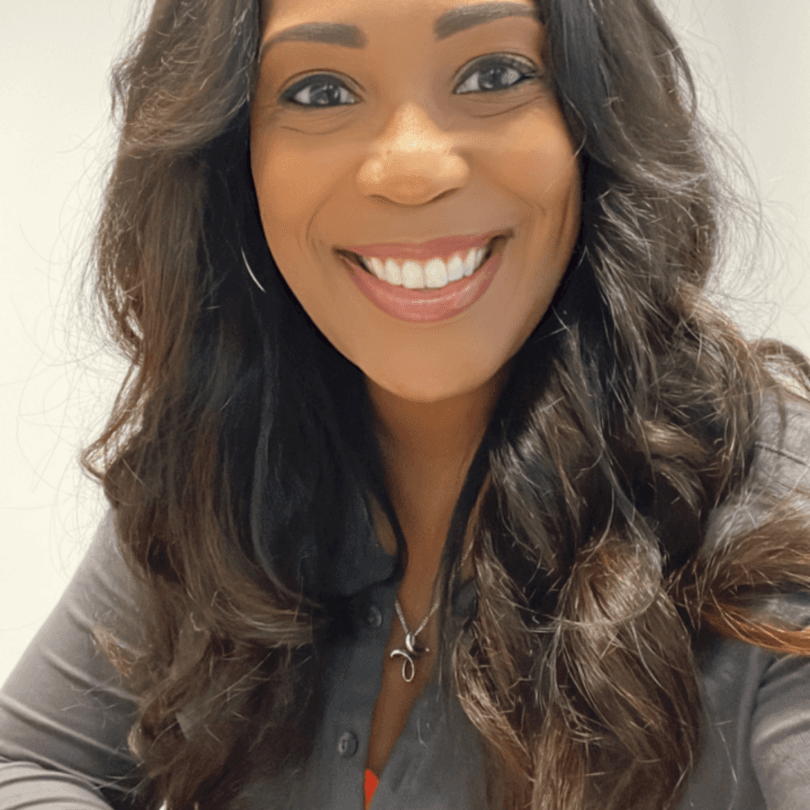Eager to pay off your debt once and for all? Brandyn Rodriguez, the founder of the personal finance platform PositivelyB, and her husband paid off six figures worth of debt in just under five years. The best part? She didn’t have to give up the little pleasures that bring her joy (like getting her hair done) in order to do it. Ahead, she shares her best tips for making debt payoff more manageable without burning out or depriving yourself of the things you love.
Featured expert: Brandyn Rodriguez

Brandyn Rodriguez - Founder of the finance blog PositivelyB
What is the zero-based budgeting method?
Zero-based budgeting is when you allocate every dollar that you earn so you know where it’s going. If your income is $3,000, you want to list out everything you’re going to spend money on: all your bills, your car payment, hair appointments, and whatever else you have in expenses. Once you’ve listed out all of your expenses, you want the total to be zero at the end of your budget. It doesn't mean that you're broke. It just means that you’ve allocated every single dollar that you've earned. It’s a budgeting method that's worked well for my husband and me over the last eight years.
How do you set budget boundaries without burning yourself out?
My husband and I set boundaries by prioritizing making room for personal funds in our budget and cutting unnecessary expenses where we can. We have a certain dollar amount for each of our respective personal funds: BMo funds for me (named after my nickname) and DJ funds for my husband. It was $200 each when we first started, but now we’ve increased it to $300. This is the cash that we can do whatever we want, whatever brings us joy. If DJ wants to golf or if I want to eat out, then that’s what we’re going to do. I can't judge him for what he wants to do with his funds, and he can't judge me for what I want to do with mine. These funds help us stay focused on our debt, because if we weren’t able to spend money on the things we enjoy, then we would get frustrated or want to quit. Our fun funds let us have the best of both worlds: Work on our goals and still enjoy our lives.
Did you have any fears about taking a part-time job in addition to your full-time job in order to work toward paying off debt?
I've always been a go-to kind of girl. If I need to get something done, I’m getting it done. I told my husband I think we should bring in more money and get part-time jobs. Once I got my waitressing job, my husband got one at Home Depot. In the beginning, I struggled with the perceptions of others. At the time, I was vice president of a nonprofit. I'm not big on titles, but I wondered what people were going to think when the vice president of the United Way was over here working at Alamo Cafe. I said let's do it for three months and see what happens. It turned into almost a year, and we were able to knock out a lot of our debt.
How did you make debt repayment feel manageable?
My husband and I chose the snowball method for paying down our debt because we wanted quick wins. We broke everything out into four milestones. First, we paid off our smallest debts. These included a few credit cards, small medical bills, and a balance we owed to a furniture store. Then, milestones two and three were focused on paying off all of our credit card debt and paying off our cars. After that, we started working on paying off our student loans. I always tell people whichever method you choose, whether it's snowball or avalanche, find the one that works best for you and then break down your goal. If you try doing too much all at once, you might feel like you're not getting anywhere.
How much would you budget for a reward when you reached a milestone?
We would take a break. The next pay period after we reached a milestone, when we didn’t have to pay a debt anymore, we used whatever was left over to do what we wanted. Whether that's getting my hair done, if my husband wants new shoes, or if we're going to take a weekend trip, we decided we're going to take that one break to reward ourselves, whatever that may be. Then we’d get back on track to the next milestone. We also didn't want to deprive our family and ourselves of doing fun things because we were paying for the mistakes that we made in our 20s.
What advice would you give to someone who wants to start paying down their debt?
First, know your numbers. Go and find every single debt that you owe, get that balance, look at the interest that you have on it, and get to know those numbers. Then, identify which method you want to use for paying off your debt, whether that’s avalanche or snowball. I’m very into visuals, so when I waited tables, I kept a milestone sheet inside of my waitress book. Every single time I opened it up to hand someone their receipt, it was a reminder of why I was working this week: To get that balance down by $300. Visuals can help you stay motivated and encouraged. Last but not least, budget. You can't pay off debt without a budgeting system. If you don't have a budget, you need to create one. There are so many different methods out there. I started with paper and pen because that's the way I liked it, and I didn’t convert to a spreadsheet until the pandemic. There are also budgeting apps you can use, too.
This interview has been edited and condensed for clarity.
Subscribe to Skimm Money
Your source for the biggest financial headlines and trends, and how they affect your wallet.
